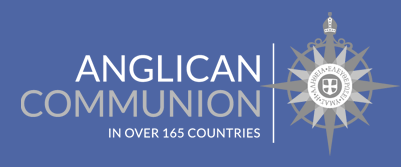Subject: Seasonal Forms for Daily Office and Daily Prayer for Ordinary Time
Moved By: The Ven. Dr. Edward Simonton
Seconded By: The Rt. Rev. Lynne McNaughton
Be it resolved that this General Synod:
Authorize for use Seasonal Forms for Daily Office and Daily Prayer for Ordinary Time.
Source: Faith, Worship, and Ministry Coordinating Committee
Submitted By: Faith, Worship, and Ministry Coordinating Committee
Does this motion contain within it any financial implications? Yes No
No financial implications within the present budget.
If yes, has the General Synod Expenditures Committee considered the implications? Yes No
EXPLANATORY NOTE/BACKGROUND
This text was the product of the Liturgy Task Force in the 2013-2016 triennium. It is a curation of existing resources into a single source. It has been in trial use for evaluation contiguous with the Inclusive Language Psalter and was released to coincide with the seasons of the liturgical year, in ‘real’ time.
Evaluations have been generally positive, with no specific requests for changes to be made.
In the years since the publication of The Book of Alternative Services, many Anglicans have found a renewed interest in regular and structured daily prayer as a means of ‘praying without ceasing’. This renewed interest, however, was not served well by how Morning and Evening Prayer were laid out in The Book of Alternative Services. A full and satisfying use of the Offices required worshippers to turn numerous times to different pages and then back again. This editorial design meant that many of the riches of the Offices in The Book of Alternative Services were not well-used or even well-known.
Other factors have also influenced Daily Prayer in these first decades of the twenty-first century. First, although The Book of Alternative Services made some strides in more complementary language for God and more inclusive language for people, many contemporary worshippers desired that more progress be made towards language that is ‘faithful and fair’. In this set of offices a balance has been sought between traditional and more inclusive language for God.
Second, in 1992 the Society of Saint Francis published Celebrating Common Prayer, a daily prayer book that introduced a new way of structuring the Daily Offices around the liturgical year. This innovative approach, along with a wider selection of canticles and prayers, influenced many Anglicans throughout the world. In 2005 the Church of England published Common Worship: Daily Prayer which provides worshippers with daily prayer for every day of the week in ordinary time and daily prayer for the seasons of the liturgical year. This resource has influenced the work of the Liturgy Task Force in preparing this resource for trial use in the Anglican Church of Canada.
While the structure of Morning and Evening Prayer in The Book of Alternative Services is the foundation of the offices that follow, Common Worship: Daily Prayer has provided both texts and approaches to the offices for each day of the week. Each office is designed so that those who use it for prayer need only move page by page through the office. In keeping with the spirit of Celebrating Common Prayer, each weekday has elements linking the day with one of the seasons of the liturgical year: Sunday (Easter), Monday (Pentecost), Tuesday (Advent), Wednesday (Christmas), Thursday (Epiphany), Friday (Lent/Passiontide) and Saturday (All Saints).
PROCEDURE FOR ADOPTION (G)
In the normal course, an ordinary motion must be passed by a majority of the members of General Synod present and voting together. Six members of General Synod may, prior to the question being put, require a vote by Orders, with a majority of each Order being necessary to pass.
If a question passes on a Vote by Orders, any six members (two from each of three different dioceses) may immediately before the next item of business require a vote to be taken by dioceses. A motion passes if a majority (or a tie) of dioceses vote in favour.
Source: Sections 4 and 5 of the Declaration of Principles and sections 18, 19 and 20 of the Rules of Order and Procedure.


